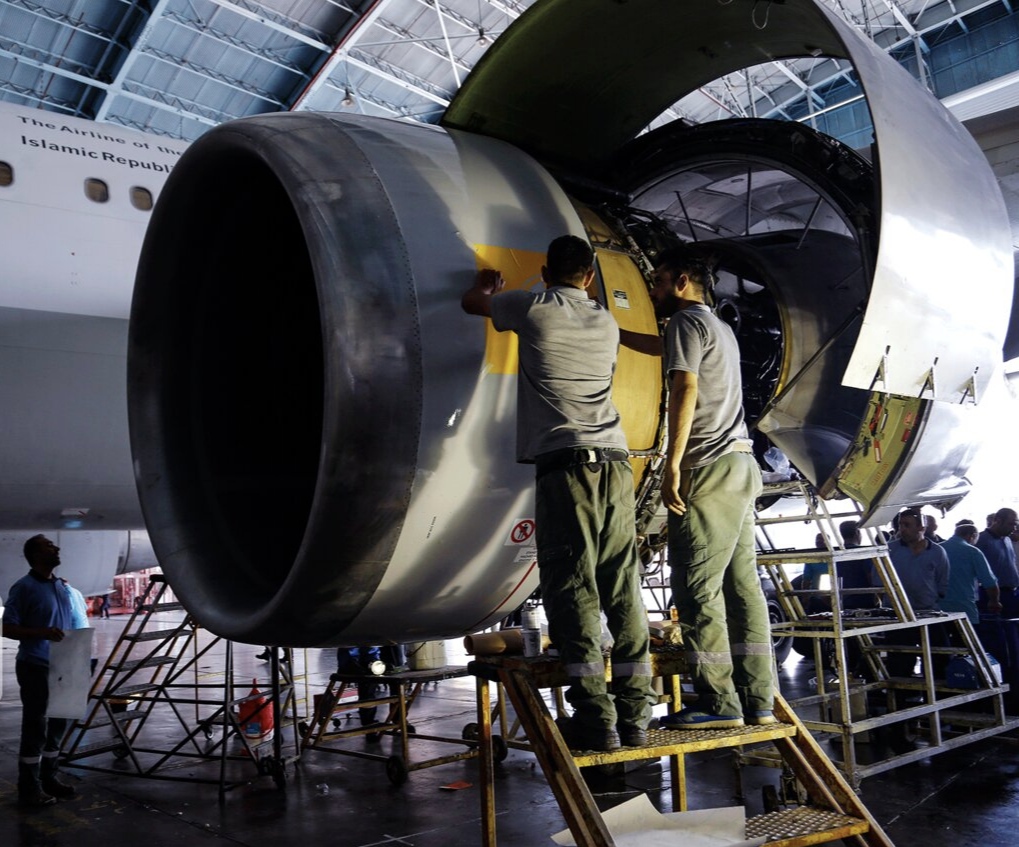Alwaght- Iran has become self-sufficient in repairing plane engines and parts, an achievement made under strict Western sanctions on its aviation industry that deny technical knowledge and spare parts even to its civil aircraft fleet.
The achievement was made by scientists and experts at MAPNA Group, a leading holding company active in various areas of business from rail transportation and power plant projects to the aviation industry.
Mehdi Akbarifard, a MAPNA expert, said on Saturday that he and his colleagues have managed to repair both the engines and their parts of the airplanes of the country’s air fleet, especially on CFM56 engines which are installed on Airbus A320 and Boeing 737 airliners.
The company also plans to produce engine parts for airplanes, Akbarifard told reporters on the sidelines of the Payam Aviation Industry Exhibition, held in Alborz Province.
According to IRNA, Akbarifard said their first and foremost mission is to increase the durability of the country’s air passenger fleet through renovating engine parts which he said will undergo various tests to examine their safety and flight performance based on international standards.
He also said that the Iranian experts have made the achievement amid restrictions to repair plane parts and engines due to Western sanctions.
Iraniam repair capabilities even captivated attention of foreign airlines, among them Russia which is suffering from the Western sanctions.
Moscow has been looking for a replacement for the Western repair companies. In April last year, Russian carrier Aeroflot sent one of its Airbus jets to Iran for repairs; the arrangement had been formalized a week earlier after Moscow signed a contract with Tehran for airplane repair and maintenance. It returned on March 6 from "C Check" in Iran.
"We are satisfied with the quality, but in terms of timing, let's just say that the contractors are not in a hurry," Aeroflot CEO Sergei Alexandrovsky told Russia's Vedomosti, adding: "We need to try alternative markets for aircraft maintenance services to have options when our own capabilities are limited — for example, during the high season of maintenance work itself."
In July last year, Iran Air's CEO Shamseddin Farzadipour was quoted as saying by ILNA that the airline was planning to unground 7 of its planes and "our priority is domestic repair."
The general manager of Iran Air Mechanical Workshops said: "Despite the diversity in the air fleet, we have reached 99 percent self-sufficiency in repairing aircraft."
He added: "This diversity of the fleet made human resources grow from a specialized perspective, and many companies are looking for our human resources. For almost several years, we have not sent a part abroad for repairs, and we operate under the supervision of the World Standard Organization, which means we prioritize safety."
Commenting on the time spent for aircraft engine repairs, he said that engine repairs depend on the condition of the engine, some parts have a limited time and we have to change them. "Of course, on average, we deliver the aircraft engine in less than 10 days, while abroad it may take more than two months."



























